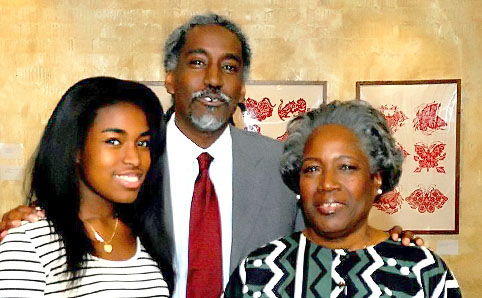Latest News Archive
Please select Category, Year, and then Month to display items
![]()
The National Research Foundation (NRF) ratings are considered the benchmark for research excellence. This year the University of the Free State (UFS) has 17 newly NRF-rated researchers. This brings the total number of NRF-rated researchers at UFS to 160.
NRF ratings are allocated based on a researcher’s recent research outputs and impact as perceived by national and international peer reviewers. The rating system encourages researchers to publish high-quality research papers in journals of high impact and to publish books through reputed academic publishers. The NRF rating system is a valuable tool for benchmarking the quality of our researchers against the best in the world.
Research at the heart of the UFS
Prof Francis Petersen, Rector and Vice-Chancellor, has indicated that the UFS provides significant support to researchers to apply for new NRF ratings or to re-apply for rating. These initiatives include the mock NRF rating panels managed by the Prestige Scholars Programme (PSP), evaluation of individual research outputs and recommendations on timely applying for rating, and improvements on rating applications by a panel consisting of internal and external members. These initiatives are bearing fruit by increasing the number of rated researchers who will transform the research profile and increase the diversity of UFS researchers.
Cultivating the best researchers.
According to Eleanor van der Westhuizen, from Research Development: “The rating of individuals is based primarily on the quality and impact of their research outputs over the past eight years, taking into consideration the evaluation made by local and international peers. It identifies researchers who count among the leaders in their fields of expertise and gives recognition to those who have a sustained production of high-quality research outputs. Several South African universities use the outcomes of the NRF evaluation and rating process to position themselves as research-intensive institutions, while others such as the UFS provide incentives for their staff members to acquire and maintain a rating.”
Cream of the crop
The UFS has also upped the ante with regard to its total number of NRF-rated researchers during the latest rating and evaluation, with an increase from 149 to 160 rated researchers in 2018.
Prof Heidi Hudson, Dean of Humanities, received an NRF B-rating, which brings the total of B-rated researchers to six. Other B-rated researchers incude Prof Johann Meyer (Mathematics), Prof Fanie Snyman and Prof Francois Tolmie (Theology), Prof Felicity Burt (Medical Microbiology) and Prof Andre Roodt (Chemistry). A total number of 10 new C-ratings and six new Y-ratings were achieved during the 2018 evaluation process.
“NRF-rating is indicative of the university’s drive to enhance its research profile nationally and internationally. Congratulations to all the scientists and scholars who received a rating in 2017. I am thankful to our academics for their commitment to the rating process,” said Prof Corli Witthuhn, Vice-Rector: Research at the UFS.
US professor makes the case for public scholarship
2011-08-17
|

|
| The Eatman family from the left: Jasmin Eatman, Prof. Timothy Eatman and Mrs. Lorraine Eatman |
The university of the 21st century should not be an ivory tower; rather it should work with communities to co-create things of public value. This was one of the observations made by visiting US Prof. Timothy Eatman. He delivered a public lecture on the topic Public Scholarship and the democratisation of knowledge in the engaged university at the University of the Free State (UFS) on Monday, 15 August 2011. Prof. Eatman challenged people at the lecture to think about richer ways of thinking about engaged public scholarship and said they need to prepare for a new citizenry of academia.
Prof. Eatman, an assistant professor of Higher Education at Syracuse University in the United States, said that knowledge was revealed in diverse ways and advised institutions of higher education to demonstrate an increasing sensitivity to issues of relevance to public good. Prof. Eatman said the present era calls for the development of a more sophisticated understanding of knowledge creation.
Prof. Eatman, who is visiting our country for the first time, brought along his mother, Lorraine, and daughter, Jasmin, who performed a contemporary dance during the event. The family had been in Bloemfontein for the past week or so and Eatman expressed his gratitude to staff and people of Bloemfontein, saying he can deliver personal testimony to the beauty of the Free State.